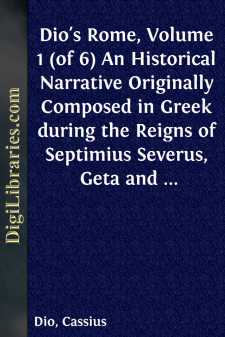Categories
- Antiques & Collectibles 13
- Architecture 36
- Art 48
- Bibles 22
- Biography & Autobiography 815
- Body, Mind & Spirit 144
- Business & Economics 28
- Children's Books 18
- Children's Fiction 14
- Computers 4
- Cooking 94
- Crafts & Hobbies 4
- Drama 346
- Education 58
- Family & Relationships 59
- Fiction 11829
- Games 19
- Gardening 17
- Health & Fitness 34
- History 1378
- House & Home 1
- Humor 147
- Juvenile Fiction 1873
- Juvenile Nonfiction 202
- Language Arts & Disciplines 89
- Law 16
- Literary Collections 686
- Literary Criticism 179
- Mathematics 13
- Medical 41
- Music 40
- Nature 179
- Non-Classifiable 1768
- Performing Arts 7
- Periodicals 1453
- Philosophy 65
- Photography 2
- Poetry 896
- Political Science 203
- Psychology 44
- Reference 154
- Religion 515
- Science 126
- Self-Help 85
- Social Science 82
- Sports & Recreation 34
- Study Aids 3
- Technology & Engineering 59
- Transportation 23
- Travel 463
- True Crime 29
Our website is made possible by displaying online advertisements to our visitors.
Please consider supporting us by disabling your ad blocker.
Dio's Rome, Volume 3 An Historical Narrative Originally Composed in Greek During The Reigns of Septimius Severus, Geta and Caracalla, Macrinus, Elagabalus and Alexander Severus
by: Cassius Dio
Description:
Excerpt
BOOK 45, BOSSEVAIN.)
[B.C. 44 (a. u.710)]
[-1-] This was Antony's course of procedure.вÐâGaius Octavius Copia,вÐâthis was the name of the son of Caesar's niece, Attia,вÐâcame from Velitrae in the Volscian country, and having been left without a protector by the death of his father Octavius he was brought up in the house of his mother and her husband, Lucius Philippus, but on attaining maturity spent his time with Caesar. The latter, who was childless, based great hopes upon him and was devoted to him, intending to leave him as successor to his name, authority, and supremacy. He was influenced largely by Attia's explicit affirmation that the youth had been engendered by Apollo. While sleeping once in his temple, she said, she thought she had intercourse with a serpent, and through this circumstance at the end of the allotted time bore a son. Before he came to the light of day she saw in a dream her womb lifted to the heavens and spreading out over all the earth; and the same night Octavius thought the sun rose from her vagina. Hardly had the child been born when Nigidius Figulus, a senator, straightway prophesied for him sole command of the realm. [2]
He could distinguish most accurately of his contemporaries the order of the firmament and the mutations of the stars, what they accomplished by separation and what by conjunctions, in their associations and retirements, and for this reason had incurred the charge of practicing some kind of forbidden pursuits. He accordingly met on that occasion Octavius, who was somewhat tardy in reaching the senate on account of the birth of the child,вÐâthere happened to be a meeting of the senate that day,вÐâand asked him why he was late. On learning the cause he cried out: "You have begotten a master over us." [3] At that Octavius was alarmed and wished to destroy the infant, but Nigidius restrained him, saying that it was impossible for it to suffer any such fate. [-2-] This was the conversation at that time. While the boy was growing up in the country an eagle snatched from his hands a loaf of bread, and after soaring aloft flew down and gave it back to him.[4] When he was a lad and staying in Rome Cicero dreamed that the boy was let down by golden chains to the summit of the Capitol and received a whip from Jupiter.[5] He did not know who the youth was, but meeting him the next day on the Capitol itself he recognized him, and told the vision to the bystanders. Catulus, who had likewise never seen Octavius, beheld in a vision all the noble children on the Capitol at the termination of a solemn procession to Jupiter, and in the course of the ceremony the god cast what looked like an image of Rome into that child's lap. Startled at this he went up into the Capitol to offer prayers to the god, and finding there Octavius, who had ascended the hill for some other reason, he compared his appearance with the dream and was satisfied of the truth of the vision. When later he had become a young man and was about to reach maturity, he was putting on the dress of an adult when his tunic was rent on both sides from his shoulders and fell to his feet....







